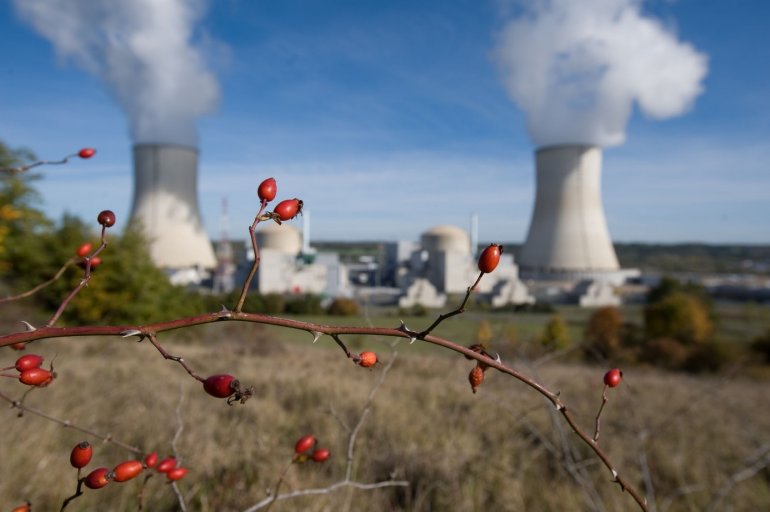Civil nuclear energy at a glance
Nuclear technology can make a vital contribution to satisfying basic human needs and sustainable development in the areas of energy, health, industry, agriculture, access to water, and environmental protection. The international community must therefore strive to share the benefits of civil nuclear energy uses following the best conditions for security, safety and non-proliferation, while respecting the environment.
Electricity production
There are currently 442 nuclear reactors in operation around the world, which are providing 10% of global energy production in 2020.
Nuclear energy is an essential component of the French electricity system (71% of the electricity production is nuclear-based). The aim of the French policy in this area is to enable and promote the development of nuclear energy, in France and abroad, respecting the highest demands in the area of security, transparency and waste management, with a view to energy security, the fight against climate change and energy competitiveness.
With a total of 57 reactors across 19 sites, an integrated model, solid feedback and a process of continuous improvement, France is a world leader for the share of nuclear energy in its electricity production and has unique knowledge from which many countries are benefiting :
- design and construction of advanced reactors which comply with the highest safety and security standards, throughout the life cycle of the facility, built around a series of different reactors, with the EPR programme as a reference (1,650 MWe), the ATMEA1 reactor (1,100 MWe), and the NUWARD small modular reactor (SMR) project (two reactors of 170 MWe)
- safe and high-performance long-term use of reactors,
- services provided to plants in operation, including maintenance, managing shutdowns, modernization operations and improving security,
- expertise of the entire fuel cycle and related services - from uranium extraction to recycling, dismantling/sanitation of facilities to waste storage - contributing to long-term secure storage and safe management of materials.
To find out more :
– Website of the CEA
– Website of the Permanent Mission of France to the IAEA
– Website of the IAEA Department of Nuclear Energy
Non-energy nuclear applications
The atom also has an essential role to play outside the energy sector. Non-energy nuclear applications bring a vital contribution for the socio-economic development of the poorest countries and the achievement of the Sustainable Development Goals. Nuclear applications are of great interest in the following fields :
- human health : prevention, diagnosis and treatment of illnesses (cancer, cardiovascular illnesses) ;
- agriculture and food security : improving farming techniques, preserving fresh foods, nutrition ;
- environmental protection : protecting the marine environment (observation of the marine environment, studies on ocean acidification, the spread of plastic pollution, etc.) ;
- industrial applications : radio-processing (an alternative to chemical transformations during industrial production and processing which helps to reduce the danger of industrial effluent), non-destructive tests via radiography, preserving cultural heritage.
The issue of radioactive waste
Like all human activity, nuclear activities produce waste. It may be at low levels, but it can be radioactive, which poses a threat to the environment and human beings.
That is why radioactive waste from nuclear activities must be managed in a robust and transparent manner which is adapted to this type of waste.
This is the case in France, where the French National Radioactive Waste Management Agency (ANDRA) is responsible for managing all radioactive waste in France. France is also studying the construction of a deep geological disposal centre (Cigéo project) for highly-radioactive waste.
To find out more
– View the ANDRA website
– Learn about the Cigéo project
– Everything you need to know about radiocative waste : educational website in French, by ANDRA, the Ministry of National Education, Higher Education and Research and the Ministry of Ecology, Sustainable Development and Energy.
– Research on nuclear waste
More details on nuclear technologies in the world :
- Read the IAEA’s Nuclear Technology Review 2019
- Learn more on nuclear reactors in the world on the IAEA PRIS database






